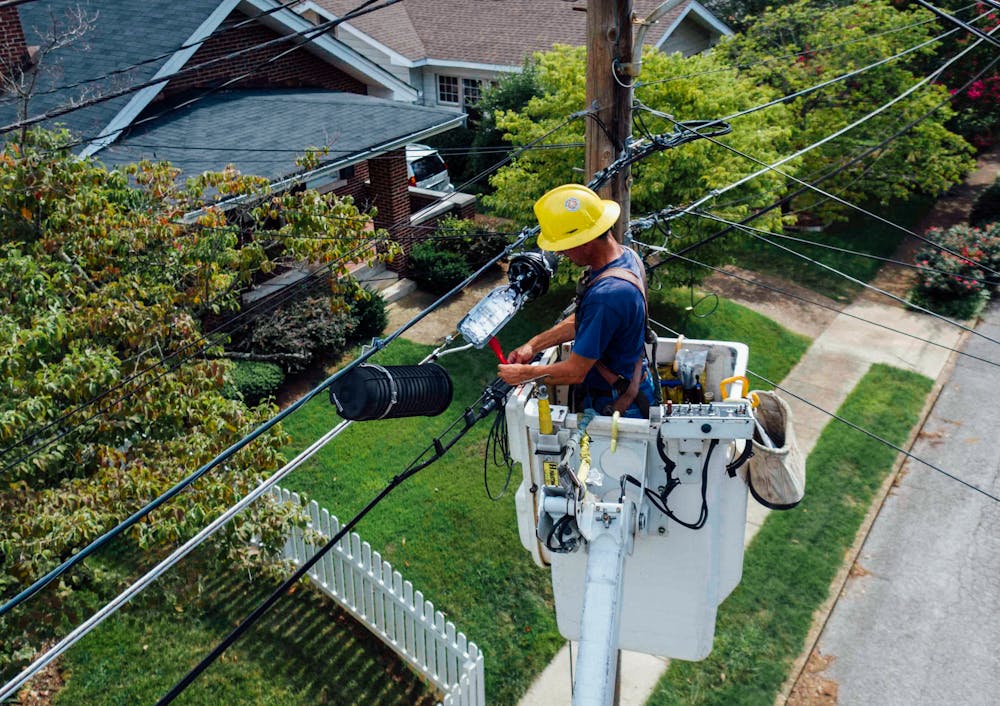A Comprehensive Guide to Becoming an Electrician in Georgia: Steps and Requirements

Becoming an electrician in Georgia offers a rewarding career with opportunities for growth and development in the construction and trades industries. The path to becoming a licensed electrician involves a combination of education, on-the-job experience, and passing state exams. Whether you’re just starting your journey or looking to advance in your career, understanding the necessary steps and requirements is crucial to achieving success. In this guide, we’ll break down the essential stages of becoming an electrician in Georgia and how you can prepare for each step. For those looking for reliable resources, you can Learn with AtHomePrep to ensure you’re fully prepared for your exams.
Step 1: Obtain a High School Diploma or GED
One must first obtain either their high school diploma or General Educational Development (GED) certificate before starting their path toward becoming an electrician in Georgia. Completing high school teaches fundamental subjects, including mathematics, physics, and English, that form the basis for electrical knowledge, as well as safety protocols. Individuals who want to advance their electrical skills should take additional courses in electrical work through high school electives or online programs, in addition to the typical requirement of a high school diploma.
Step 2: Pursue a Formal Education or Apprenticeship
After obtaining your high school diploma or GED, you must decide between formal training and beginning an apprenticeship. Educational programs at technical schools and community colleges provide comprehensive training on electrical systems, along with safety standards and advanced electrical methods. Students can complete their training at these programs in between six months and two years, with specific programs offering certification upon graduation. Through apprenticeships, you can obtain paid training by working under licensed electricians who provide guidance.
Step 3: Gain Work Experience
To take the electrical licensing exam in Georgia, you must first finish your apprenticeship or training program, then build practical experience before applying. To obtain an electrician’s license, most candidates must work under the supervision of a licensed electrician for at least 4,000 hours. The training program consists of 2,000 hours, which typically span two years, and covers a wide range of electrical responsibilities, including building wiring setups and troubleshooting complex systems.
Step 4: Pass the Georgia Electrical Exam
The Georgia electrical exam serves as the last requirement for obtaining a licensed electrician status in the state. The examination evaluates candidates on their mastery of the National Electrical Code (NEC) as well as local Georgia electrical regulations and safety standards, and other applicable rules. You must pass a multiple-choice exam to qualify for Georgia electrical licensure.
Step 5: Apply for a License
After passing the Georgia electrical exam, you should apply for an electrical license to the Georgia Construction Industry Licensing Board. The application requires evidence of your education completion alongside proof of apprenticeship completion and exam results. You must include references, along with evidence of your work experience, when applying for your license. The licensing board reviews applications to grant professional licenses for journeyman or master electrician roles in Georgia when all requirements are fulfilled.
Step 6: Advance Your Career
Once you achieve your electrician license in Georgia, you will find several exciting ways to build your career. Electrical professionals who want to specialize can choose from residential wiring, industrial systems, or renewable energy solutions as their area of focus. Moving forward in your electrician career often leads professionals to achieve master electrician status by gaining more experience and knowledge beyond the journeyman level requirements.
The career advancement of master electricians includes project management of complex installations and supervision of apprentices while offering the opportunity to establish their own electrical contracting company. Electricians need to pursue ongoing education because it enables them to stay up-to-date with both modern technological developments and National Electrical Code revisions. Membership in professional organizations like NECA creates opportunities for networking among electricians while delivering essential resources needed for their professional development.
Conclusion
To become an electrician in Georgia, one must follow a methodical process that requires both academic education and practical training. Your success in becoming an electrician depends on following this specific educational sequence that starts with high school completion and ends with licensing approval for a rewarding career. Your path to becoming a licensed electrician in Georgia should include either formal training or apprenticeship experiences because these programs teach the required electrical standards set by the state. The resources at Learn with AtHomePrep enable you to achieve exam readiness and career success. Your path to becoming a licensed electrician in Georgia starts now, so start moving forward.
